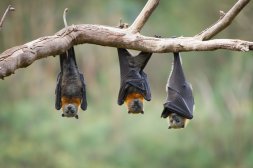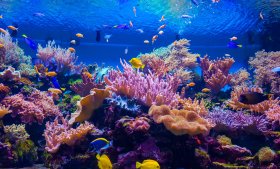Why Studying Crocodilians Offers Clues to Overcoming Environmental Change

Crocodilians, often regarded as living fossils, have survived for millions of years through drastic environmental changes and mass extinctions. By studying these resilient creatures, scientists and environmentalists can gain valuable insights into adaptation, survival strategies, and ecosystem stability that could inform our approach to current and future environmental challenges.
Understanding the Evolutionary Success of Crocodilians
Crocodilians have existed for over 200 million years, predating even the dinosaurs. Their ability to adapt to changing climates and habitats has been key to their survival. Unlike many species that went extinct during catastrophic events, crocodilians adjusted their physiology and behavior to endure periods of extreme environmental stress. This evolutionary success provides a model for understanding long-term species resilience in fluctuating ecosystems.
Physiological Adaptations That Promote Survival
One of the remarkable aspects of crocodilians is their unique physiological adaptations. They possess efficient respiratory systems allowing them to stay submerged underwater for extended periods, slow metabolic rates that conserve energy during scarce food availability, and robust immune systems protecting them against various pathogens. These traits help crocodilians survive harsh conditions such as droughts or habitat changes caused by climate shifts.
Behavioral Strategies Enhancing Environmental Adaptability
Crocodilians exhibit complex behaviors like temperature-dependent sex determination which allows populations to adjust sex ratios based on environmental conditions. Their nesting habits also involve careful site selection near water sources which maximizes offspring survival despite fluctuating environments. Studying these behaviors offers insights into how animals might naturally respond or adapt behavioral strategies in response to ongoing environmental change.
Implications for Conservation Practices
Learning from crocodilian resilience can improve conservation efforts targeted at other vulnerable species affected by habitat loss and climate change. For example, understanding how crocodilian physiology supports survival in variable environments can guide habitat restoration projects or captive breeding programs aimed at enhancing adaptive capacities of endangered animals facing similar threats.
Broader Ecological Lessons from Crocodilian Survival
Beyond individual species adaptations, crocodilians play a vital role in maintaining healthy ecosystems by controlling prey populations and contributing nutrient cycling through their feeding activities. Their persistence highlights the importance of keystone species in ecosystem resilience amid environmental disturbances — an important consideration when designing strategies for ecosystem management under global change scenarios.
Studying what we can learn from the survival of crocodilians not only deepens our understanding of nature’s adaptability but also equips us with practical knowledge applicable across conservation biology and environmental management fields. As we confront accelerating ecological challenges worldwide, these ancient reptiles offer valuable clues on navigating a sustainable future.
This text was generated using a large language model, and select text has been reviewed and moderated for purposes such as readability.











